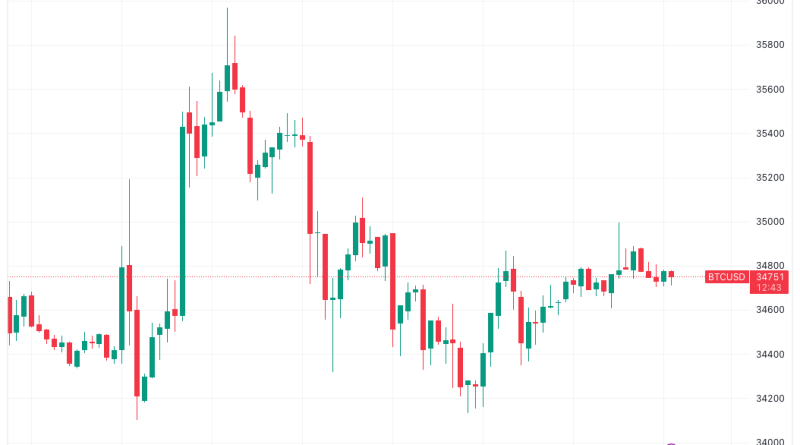10 Effective Blockchain Apps to Transform Your Business in 2025
- Decentralized Identity Verification
- Supply Chain Transparency Platforms
- Smart Contract Automation Tools
- Decentralized Finance (DeFi) Applications
- NFT Marketplaces for Business Assets
- Corporate Voting & Governance Apps
- Blockchain-based Loyalty Programs
- Secure Data Sharing Platforms
- Cross-Border Payment Solutions
- Enterprise Blockchain Integration Tools
1. Decentralized Identity Verification
Enhancing Security and Privacy
In 2025, businesses are increasingly relying on blockchain apps for identity verification because of their enhanced security features. Decentralized identity verification apps allow users to control their personal data, sharing only what is necessary with organizations. Unlike traditional systems, these blockchain apps reduce the risk of data breaches and identity theft.
For example, companies in finance and healthcare sectors are adopting these apps to authenticate clients securely. These blockchain apps leverage cryptographic techniques to ensure data integrity and privacy, making customer onboarding faster and more trusted.
Implementing such solutions can lead to significant cost savings and improved customer trust, especially as regulatory standards become more stringent. Using blockchain apps for identity verification is a smart move in 2025 to future-proof your business security.
Real-World Examples and Practical Tips
Some pioneering firms, like Civic and uPort, have already demonstrated the potential of decentralized identity apps. They allow users to manage their digital identities across multiple platforms seamlessly. As a business, you can integrate similar apps to streamline your verification processes.
My advice? Start by partnering with established blockchain app providers that offer customizable identity solutions. Ensure compliance with GDPR and other relevant privacy laws to avoid legal pitfalls.
Regularly review your identity verification workflows and adapt blockchain apps to keep pace with advances and regulatory updates in 2025. This proactive approach can translate into better user experience and lower operational costs.
2. Supply Chain Transparency Platforms
Improving Traceability and Trust
Supply chain transparency is vital for consumer trust and regulatory compliance. Blockchain apps are transforming how businesses track the origin and movement of goods across complex networks. By recording each transaction on an immutable ledger, these apps give everyone involved real-time visibility into supply chain stages.
In 2025, companies like IBM Food Trust and VeChain are leaders in deploying blockchain apps that enable comprehensive traceability. These solutions help prevent fraud, reduce recalls, and demonstrate compliance to regulators.
Using blockchain apps for supply chain transparency allows you to verify product authenticity and improve accountability, essential for sectors like food, pharmaceuticals, and luxury goods.
Practical Implementation and Benefits
Start by mapping your supply chain and identifying key points where data can be recorded securely on blockchain apps. Employ sensors and IoT devices that feed information directly into blockchain ledgers, reducing manual entry errors.
These apps also facilitate stakeholder collaboration by providing a shared, unchangeable record accessible to all authorized parties. This fosters trust among suppliers, distributors, and customers alike.
Integrating blockchain apps in supply chain processes can lead to faster product recalls, reduced counterfeit risks, and improved consumer confidenceâan investment that pays off in 2025.
3. Smart Contract Automation Tools
Streamlining Business Processes
Smart contracts are self-executing agreements with terms encoded on blockchain apps. They automatically trigger actions when predefined conditions are met, reducing reliance on intermediaries and manual oversight. In 2025, smart contract automation will be more accessible and customizable through dedicated blockchain apps.
These apps are transforming industries like real estate, insurance, and legal services by automating payments, claim processing, and contractual obligations. For example, a smart contract app can automatically release escrow funds once delivery is confirmed.
By adopting blockchain apps that facilitate smart contract deployment, businesses can achieve faster transaction processing and fewer disputes, ultimately reducing costs and increasing efficiency.
Best Practices and Adoption Tips
Begin by assessing which workflows can benefit most from automation. Focus on processes with clear, rule-based steps that lend themselves to smart contract logic.
Choose blockchain apps with user-friendly interfaces and strong security measures, ensuring your team can deploy and manage smart contracts without extensive blockchain expertise.
Regularly audit and update your smart contract templates to adapt to changing legal and operational requirements. In 2025, smart contract apps are essential tools for digital transformation.
4. Decentralized Finance (DeFi) Applications
Transforming Financial Interactions
Decentralized finance, or DeFi, platforms are blockchain apps that enable financial transactions without traditional banks. In 2025, DeFi apps are becoming mainstream, allowing businesses to access loans, earn interest, and exchange assets directly on blockchain networks.
For example, small and medium enterprises (SMEs) can leverage DeFi apps to secure quick funding, bypassing lengthy bank approval processes. This flexibility helps startups and established companies manage cash flows more effectively.
DeFi apps also promote transparency, as all transactions are publicly recorded and verifiable, increasing trust with investors and partners.
Maximizing Opportunities with DeFi Apps
Start by exploring decentralized lending platforms like Aave or Compound, which support business loans with competitive rates. Integrate these apps into your treasury management strategies for better liquidity control.
Ensure compliance and assess risks carefully, as DeFi is still evolving and may involve smart contract vulnerabilities. Partner with reputable DeFi providers to ensure security and reliability.
By adopting blockchain apps in DeFi, your business can unlock new financing opportunities and improve financial resilience in 2025.
5. NFT Marketplaces for Business Assets
Leveraging NFTs for Asset Tokenization
Non-fungible tokens (NFTs) are not just for art anymore. In 2025, businesses are using blockchain apps to tokenize real-world assets like property, intellectual property, and exclusive products, enabling new revenue streams and ownership models.
For instance, real estate companies can list property deeds as NFTs, providing a transparent and tamper-proof record of ownership. Licensing rights for music or digital content can be sold or transferred securely via NFT marketplaces.
This shift enhances liquidity, reduces fraud, and creates new marketing opportunities for brands looking to engage consumers in innovative ways.
Practical Tips for Using NFT Blockchain Apps
Partner with established NFT platforms such as OpenSea or Rarible that offer dedicated business solutions. Ensure your assets are properly documented and priced before tokenization.
Engage with legal experts to navigate intellectual property rights and compliance around NFTs. Educate your team on blockchain app capabilities to maximize value creation.
Adopting NFT blockchain apps can position your brand at the forefront of digital innovation in 2025.
6. Corporate Voting & Governance Apps
Enhancing Transparency in Decision-Making
Modern businesses are increasingly adopting blockchain apps for secure and transparent voting systems. These apps allow shareholders and stakeholders to participate in corporate decisions with confidence that votes are accurately recorded and tamper-proof.
In 2025, blockchain-based governance apps are crucial for decentralized autonomous organizations (DAOs) and traditional companies alike, supporting fair elections and voting processes.
Implementing these apps builds trust, ensures regulatory compliance, and simplifies audit procedures, making governance more efficient.
Practical Implementation Strategies
Choose blockchain apps that provide user-friendly interfaces and integration options with your existing corporate systems. Conduct pilot tests with a small stakeholder group to refine processes.
Educate your stakeholders on the security benefits and usage protocols. Maintain transparency and communicate clearly to encourage participation.
Moving forward, blockchain apps for corporate governance will be a standard asset for responsible businesses in 2025.
7. Blockchain-based Loyalty Programs
Enhancing Customer Engagement
In 2025, loyalty programs powered by blockchain apps offer a more flexible, transparent, and secure way to reward customer engagement. These apps enable customers to earn, trade, and redeem points seamlessly across ecosystems.
For example, retail chains can issue blockchain-backed tokens that customers can exchange for discounts or special offers, ensuring authenticity and preventing fraud.
Businesses benefit from increased customer retention and data security, while customers enjoy more control over their rewards.
Tips for Implementing Loyalty Blockchain Apps
Partner with platforms like Loyyal or Qiibla that specialize in blockchain loyalty solutions. Ensure your program is simple to understand and use, promoting wide adoption.
Integrate your app with existing CRM and POS systems for a seamless customer experience. Use data analytics to optimize reward structures based on consumer behavior.
In 2025, blockchain apps for loyalty programs will be crucial for brands seeking competitive differentiation.
8. Secure Data Sharing Platforms
Empowering Safe Data Collaboration
Many industries require secure data sharing among multiple parties. Blockchain apps facilitate this by providing encrypted, decentralized data platforms that ensure transparency and control.
For instance, healthcare providers can share patient data securely with other practitioners, while maintaining full consent and privacy controls through blockchain apps.
This approach reduces data breaches, simplifies compliance with regulations like HIPAA, and fosters collaboration.
Implementation Tips and Advantages
Evaluate blockchain apps that support permissioned networks tailored for your industry. Focus on user access controls and audit capabilities.
Train your teams on best practices for data sharing and security. Regularly update your blockchain app infrastructure to address emerging threats and compliance requirements.
Adopting secure data sharing blockchain apps in 2025 can give your business a competitive edge in collaborative ecosystems.
9. Cross-Border Payment Solutions
Reducing Costs and Increasing Speed
International payments are traditionally slow and expensive, but blockchain apps are changing that in 2025. These apps enable real-time, low-cost cross-border transactions that are transparent and traceable.
Major financial institutions and fintech firms are leveraging blockchain apps like Ripple to streamline remittances, reducing reliance on SWIFT and correspondent banks.
For businesses, this means quicker settlements and better cash flow management, especially when dealing with global partners.
How to Integrate Blockchain Apps for Payments
Assess your current payment processes and identify points where blockchain apps can cut costs and improve speed. Partner with reputable providers like Stellar or Ripple for reliable solutions.
Ensure compliance with international regulations and integrate seamlessly with your ERP or accounting systems. Provide staff training for smooth adoption.
In 2025, blockchain apps for cross-border payments are vital for expanding global reach effectively.
10. Enterprise Blockchain Integration Tools
Facilitating Seamless Blockchain Adoption
Finally, as blockchain technology matures, enterprise-grade integration tools become essential. These apps help large organizations incorporate blockchain into existing IT architecture efficiently.
They support smart contract deployment, decentralized data management, and interoperability across diverse blockchain networks. Companies like Microsoft Azure and IBM offer robust solutions tailored for enterprise needs.
Using these tools ensures a smoother transition, minimizes disruptions, and maximizes the benefits of blockchain apps across your business operations in 2025.
Best Practices for Implementation
Start by conducting a thorough audit of your IT infrastructure. Identify specific use cases and select integration tools aligned with your strategic goals.
Train your IT team on blockchain concepts and platform functionalities. Collaborate with blockchain consultants or vendors to customize solutions for your industry.
Appropriate enterprise blockchain integration will enable your business to leverage the full potential of blockchain apps in 2025.
Conclusion
As we look ahead to 2025, it’s clear that blockchain apps will play a critical role in transforming various facets of business operations. From enhancing security and transparency to streamlining processes and enabling new revenue streams, these applications are indispensable tools for innovative companies. Leveraging the power of blockchain apps, your business can stay ahead in the competitive landscape, foster trust, and unlock new growth opportunities. Don’t waitâembrace these technologies now and prepare for a more efficient, transparent, and secure future in 2025.
FAQs about Blockchain Apps in 2025
- What are the best blockchain apps to use in 2025?
- How do blockchain apps improve business security?
- Can small businesses benefit from blockchain apps?
- What are the challenges of implementing blockchain apps in enterprise settings?
- Why are blockchain apps crucial for future supply chains?
Related Content
- When Companies Track Purchases, Bitcoin Privacy Is More Important Than Ever
- My account
- Bitcoin price fails $38.5K breakout as US GDP fuels Fed hard landing woes
- You can build your own Trezor, but here’s the price — DIY wallet engineer
- Price analysis 10/23: SPX, DXY, BTC, ETH, BNB, XRP, SOL, ADA, DOGE, TON


